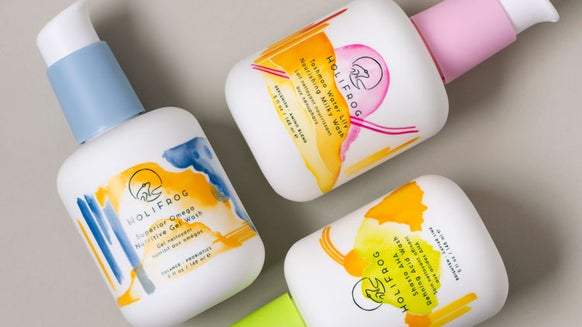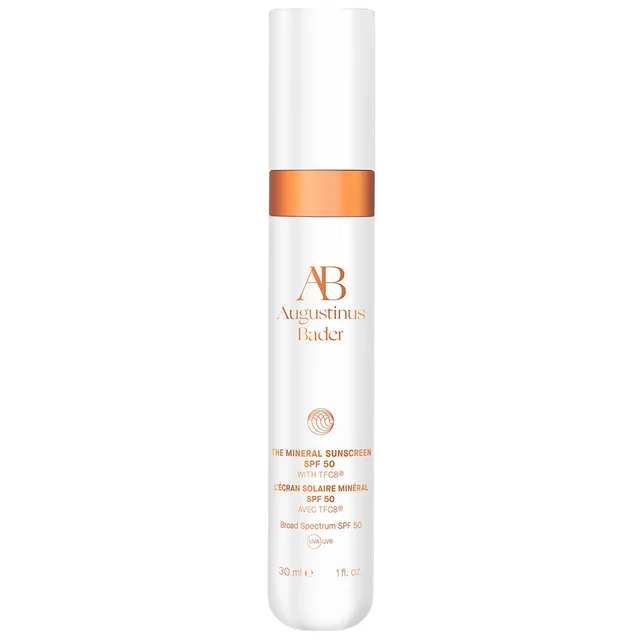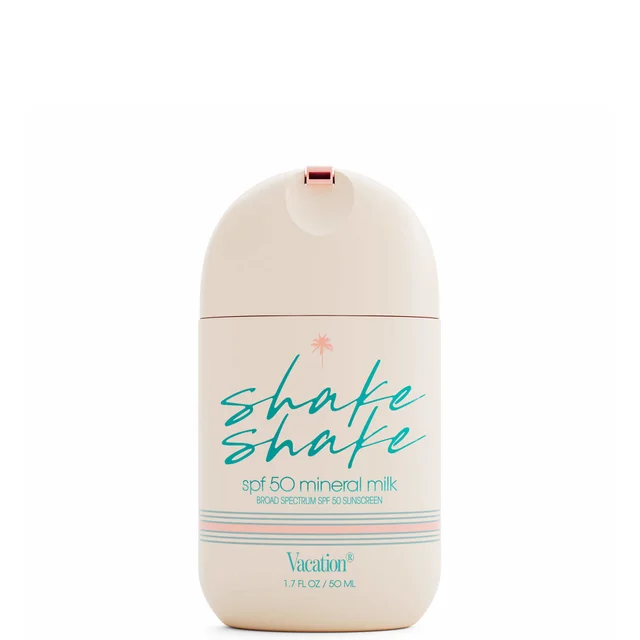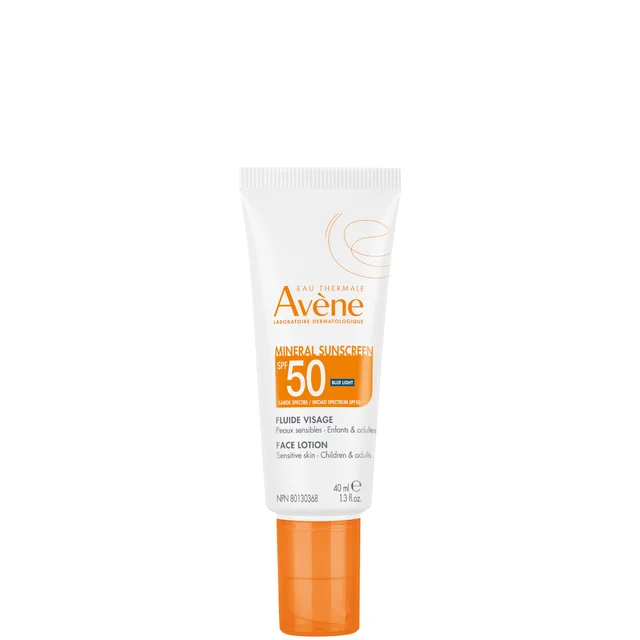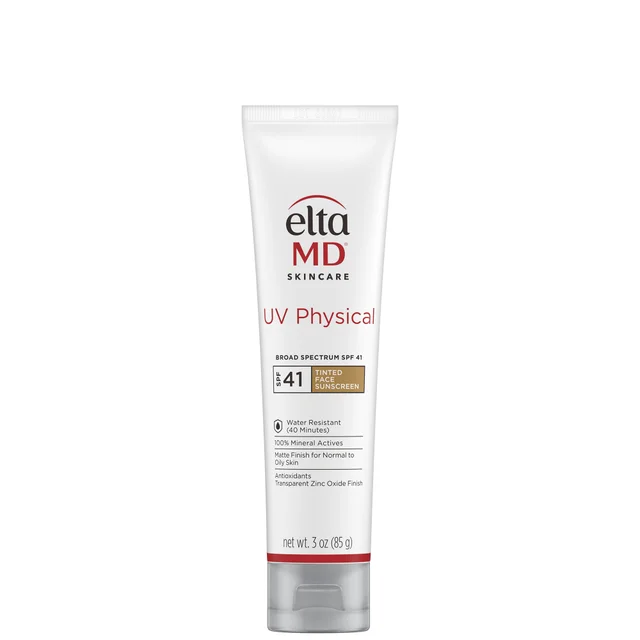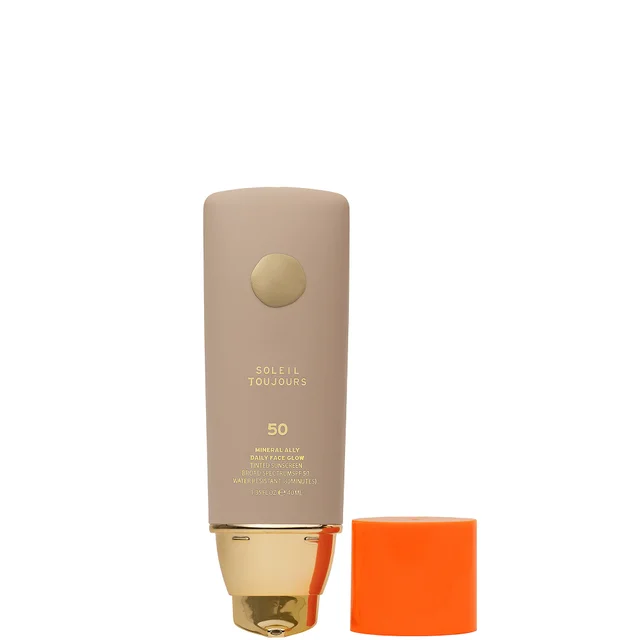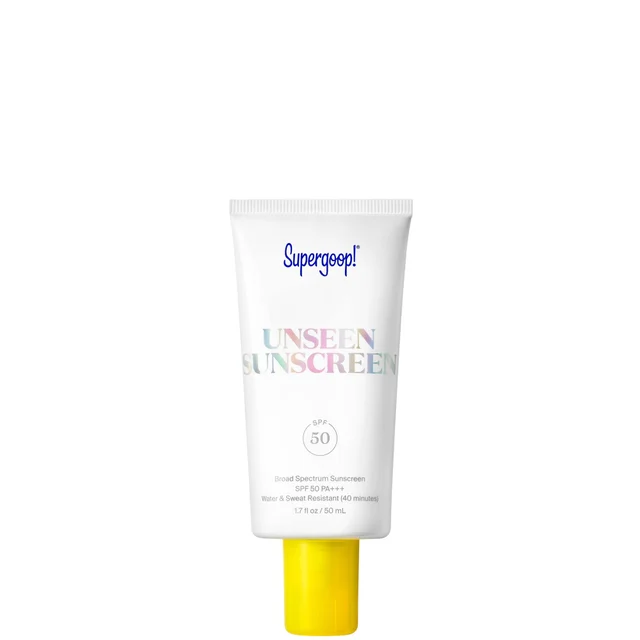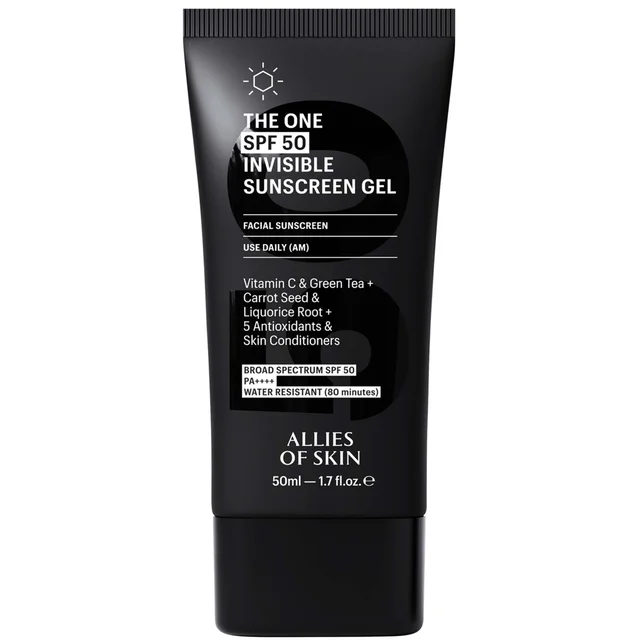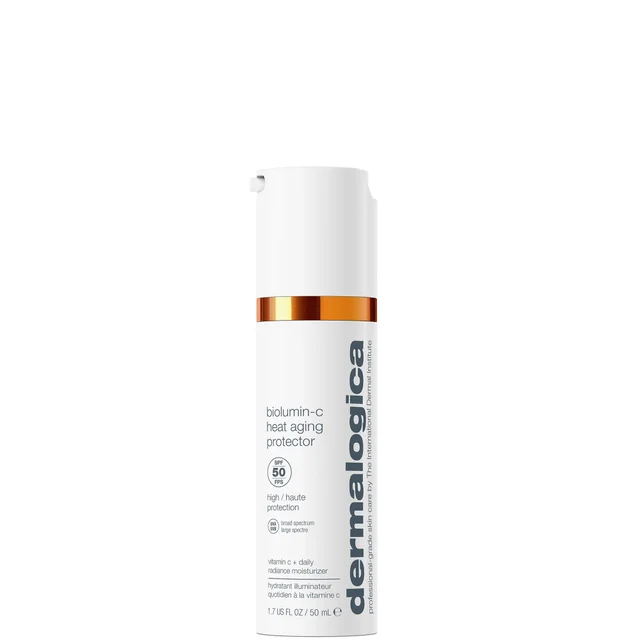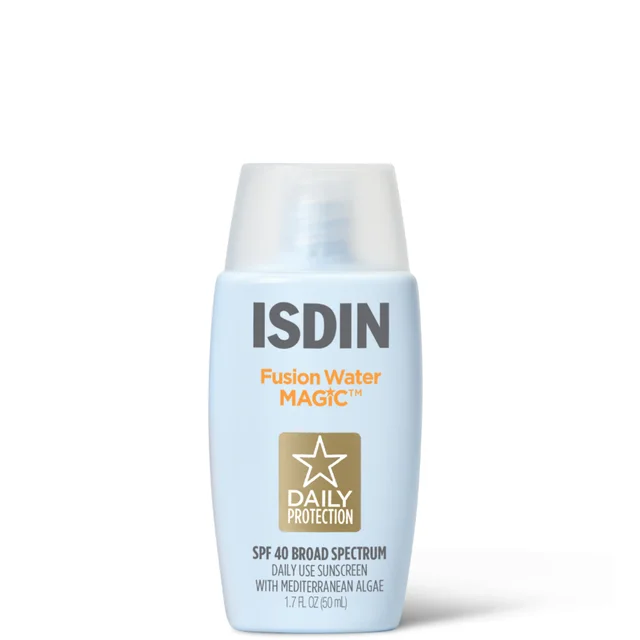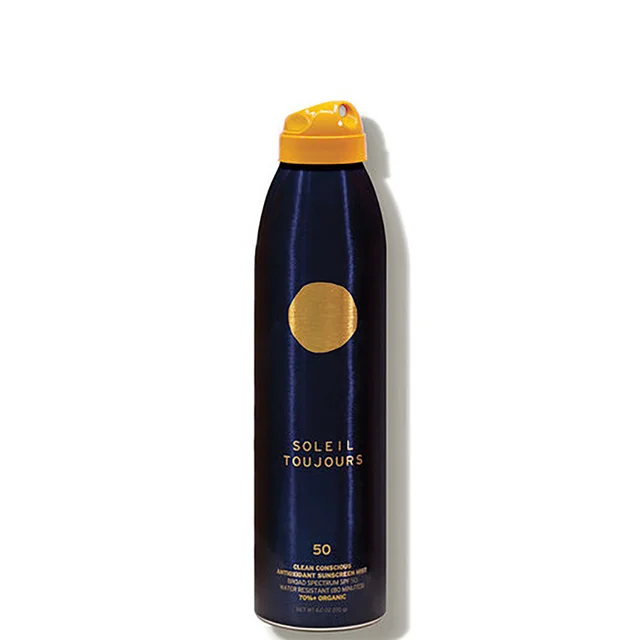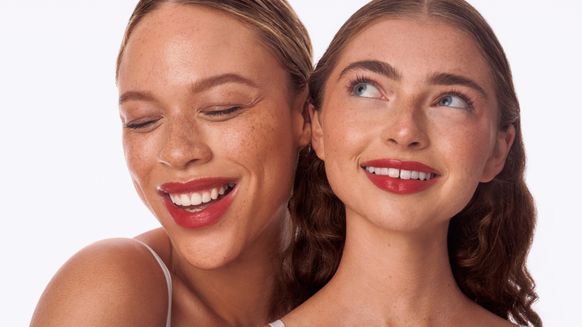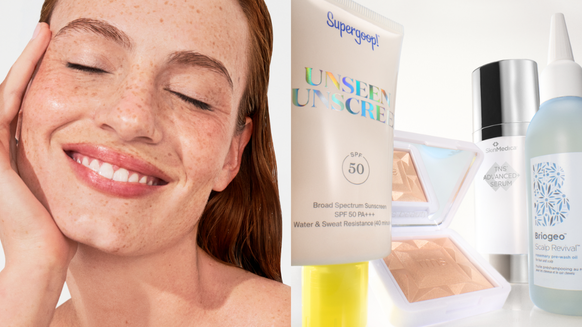Mineral vs. Chemical Sunscreen: A Derm-Approved Guide on How to Choose the Right Type of Sunscreen
As your skin goes through changes with the seasons or even just with time, so do the products and ingredients that you need to keep your complexion in top shape. There is, however, one product that needs to be a constant in any skincare routine: sunscreen. Not just for when you’re out and about on especially sunny days, sunscreen is your skin’s number one rain-or-shine daily protection against ultraviolet damage, premature skin aging, hyperpigmentation, and skin cancer. But when faced with so many options, it can be challenging to figure out which one deserves a spot in your skincare routine. Take mineral vs chemical sunscreen, for example.
While both types offer your skin the same UV protection, there’s a significant difference in how they get the job done and how they impact your specific skin type. So, to get the guesswork out of the way, we spoke with a dermatologist to help us break down everything you need to know about mineral (also known as physical sunscreen) and chemical sunscreen and decide which sun protection is best for your skin and lifestyle.
Meet the Expert
- Dr. Ashley Magovern - Board-certified dermatologist and member of Dermstore’s Medical Advisory Board
Mineral vs. Chemical Sunscreen: How They Differ
While mineral and chemical sunscreens share a common task of protecting your skin from sun damage, they largely differ in how they go about their task. Mineral sunscreens, typically formulated with zinc oxide and titanium dioxide, sit on the skin’s surface and reflect UV radiation away from your skin. Kind of like tiny umbrellas that prevent harmful rays from touching your skin. And because they’re not absorbed by the skin, mineral sunscreens can sometimes leave a white cast, particularly on deeper skin tones. The good news is, plenty of newer formulas have improved on this and have made it possible for mineral sunscreens to be lighter and near-invisible on the skin.
On the other hand, chemical sunscreens use ingredients like avobenzone, oxybenzone, homosalate, and octisalate and work by absorbing UV rays and converting them into heat before releasing and dissipating it from the skin. They are generally more lightweight and leave no trace once properly applied and absorbed, making them ideal to wear under makeup.
That said, one isn’t necessarily better than other. “It really depends on your skin type and lifestyle,” says Dr. Ashley Magovern, board-certified dermatologist and member of Dermstore’s Medical Advisory Board. “Mineral sunscreens are ideal for sensitive, post-procedure skin, or those prone to redness or rosacea. They’re also more photostable and less likely to cause irritation.” Chemical sunscreens, on the other hand, often “feel more elegant and cosmetically pleasing, especially under makeup or in water-resistant formulations,” says Dr. Magovern.
Which Type Of Sunscreen is Better for Acneic Skin?
If you have oily and acne-prone skin, the wrong sunscreen formula can overwhelm your already struggling skin and put you on the losing end of your battle with breakouts. When choosing between mineral vs chemical for acne-prone skin, Dr. Magovern says that while both can work, your best choice is still a mineral formula that lets you take advantage of zinc oxide’s calming and anti-inflammatory properties. “Mineral sunscreen are often a safer bet for acne-prone skin. They’re non-comedogenic and less likely to cause irritation or breakouts. Look for a lightweight, oil-free formula with zinc oxide,” explains Dr. Magovern.
What is Mineral Sunscreen
Just as the term suggests, mineral sunscreens use natural UV-filtering minerals—primarily zinc oxide and titanium dioxide—to form a barrier on top of the skin that prevent harmful rays from penetrating and damaging your complexion. “Mineral sunscreen sits on the skin’s surface and act as a shield, reflecting and scattering both UVA and UVB rays,” says Dr. Magovern. “It works immediately upon application and is generally less likely to cause irritation.”
Featured Product: Augustinus Bader The Mineral Sunscreen SPF 50
Every newcomer wants to make a good impression, and well-loved brand Augustinus Bader’s first foray into sun protection is definitely making all the best ones. With a formula that expertly combines skincare with SPF, this mineral sunscreen goes above and beyond for your skin. Not only does it serve broad-spectrum SPF 50 protection, it also visibly reduces signs of aging, evens skin tone, and improves hydration by over three times, leaving you with renewed, healthier, and well-protected skin.
Active Ingredients: TFC8®, Titanium Dioxide 9%, Zinc Oxide 13%
Type: Mineral
SPF: 50
Mineral Sunscreen Benefits
Wondering if mineral sunscreen might be your skin’s perfect match? Here are the top reasons Dr. Magovern and skincare pros swear by it:
Gentle on skin: Mineral sunscreens are ideal for sensitive, acne- or rosacea-prone skin. They’re non-comedogenic, have calming properties, and less likely to irritate reactive skin. Broad-spectrum protection: Zinc oxide and titanium dioxide provide complete protection against UVA and UVB rays Works instantly: Purely mineral sunscreen formulas work as soon as they are applied, which means no more waiting for 15 minutes before stepping out into the sun. Reef-safe: Mineral sunscreens don’t contain synthetic chemicals that could potentially harm marine life.
Shop the Best Mineral Sunscreens
Vacation Shake Shake SPF 50 Mineral Milk
With its unique shakerball packaging and skin-loving ingredients, this sunscreen feels like a dream vacation for your skin. Not only does it protect your skin from UV rays with high-performing minerals and SPF 50, it also makes sure your skin barrier stays strong and hydrated even will all that fun under the sun.
Active Ingredients: Zinc Oxide 20.5%, ZincWater™, Hyaluronic Acid, Niacinamide, Ceramides, Collagen Peptides, Cucumber, White Tea, Aloe Vera, Vitamin E
Type: Mineral
SPF: 50
Avene Mineral Sunscreen SPF 50 Face Lotion
When it comes to gentle, effective, and nourishing formulations, Avene definitely knows its stuff. This sunscreen delivers 100% mineral protection from UVA and UVB rays, pollution, and blue light in a calming, antioxidant-rich formula that quickly absorbs and imparts a universally flattering nude finish to offset any white cast. Bonus points for being water-resistant for up to 80 minutes, making it the perfect daily companion and travel buddy.
Active Ingredients: Zinc Oxide 12%, Tocopherol Acetate (Vitamin E), Bisabolol, Allantoin
Type: Mineral
SPF: 50
Soleil Toujours Mineral Ally Daily Face Glow SPF 50
A sunscreen that delivers broad-spectrum protection while giving your skin that soft, lit-from-within glow? We’re here for it. Infused with potent antioxidants and advanced hydrating compounds, this lightweight SPF helps lock in moisture and illuminate your complexion while keeping sun damage and free radicals at bay.
Active Ingredients: Zinc Oxide 20%, Aloe Barbadensis Leaf Juice, Bisabolol
Type: Mineral
SPF: 50
What is Chemical Sunscreen?
Chemical sunscreens use active ingredients like avobenzone, homosalate, octocrylene, and octisalate to protect the skin from UV radiation. “These ingredients absorb UV rays, convert them into heat, and then release that heat from the skin,” explains Dr. Magovern. “Each absorbs UV rays at slightly different wavelengths, so most chemical sunscreens use a combination to achieve broad-spectrum protection.”
In other words, if mineral sunscreen acts like tiny umbrellas that physically block and scatter UV rays, a chemical sunscreen is more like a sponge that traps and absorbs ultraviolet light and turn them into energy before they can wreak havoc in your skin.
Unlike mineral sunscreens that typically become effective right after application, chemical sunscreens require some prep for this conversion process. “Chemical sunscreens need about 15 to 30 minutes to activate after applying,” says Dr. Magovern, which is why it’s best to follow label instructions and wait a few minutes before sun exposure to get maximum sun protection.
Featured Product: Supergoop Unseen Sunscreen SPF 50
Often hailed as a holy grail sunscreen, this award-winning 100 percent invisible face sunscreen boasts of a scentless, weightless, and non-irritating formula that delivers total UV protection while enhancing your skin’s clarity and overall health. But that’s not all. Formulated for all skin types—including sensitive and acne-prone skin—its multitasking formula also doubles as a primer, preventing your makeup from slipping and sliding and ensuring longer-lasting, all-day wear.
Active Ingredients: Chamomile-derived Bisabolol and Licorice Root Complex, Meadowfoam Seed Oil, Avobenzone 3%, Homosalate 7%, Octisalate 5%, Octocrylene 9%
Type: Chemical
SPF: 50
Chemical Sunscreen Benefits
Chemical sunscreens work well for daily use because they are weightless and work great under makeup. Other top benefits that make them a go-to are:
Sheer and lightweight: Chemical sunscreens are typically lightweight and fast-absorbing, leaving no white cast or heavy residue. Layers easily: Plays well with other skincare products and acts as a primer when layered under makeup. Sweat- and water-resistant: More ideal for sports and outdoor activities.
Shop the Best Chemical Sunscreens
Allies of Skin THE ONE SPF 50 Invisible Sunscreen Gel
If you’ve been on the hunt for the perfect invisible sunscreen that ticks all the boxes, then your search ends here. Broad-spectrum, water-resistant, and with the highest PA rating, this completely transparent (thanks to its Second-Skin Membrane Complex that remains invisible and lightweight even when reapplied multiple times) SPF gel conditions the skin, blurs the appearance of pores and blemishes, and doubles as a primer and makeup base.
Active Ingredients: Second-Skin Membrane Complex, Vitamin C, Green Tea, Carrot Seed, Red Raspberry Seed Oil, Octocrylene, Homosalate
Type: Chemical
SPF: 50
Dermalogica BioLumin-C Heat Aging Protector SPF 50
Lightweight but mighty, this hardworking daily moisturizer with SPF serves triple-threat vibes with its antioxidant-rich, heat-protective, and high SPF formula. It protects against high temperatures, UV rays, and free radicals while brightening and smoothing out your complexion and tackling signs of heat aging.
Active Ingredients: Avobenzone 3%, Homosalate 7%, Octisalate 5%, Octocrylene 10%, Safflower, Propanediol
Type: Chemical
SPF: 50
ISDIN Fusion Water MAGIC SPF 40
UItra-fluid and non-comedogenic, this water-based sunscreen practically disappears on skin—yes, like magic. Proven to deliver year-round protection against sunburn, photoaging, blue light, free radicals, pollution, and heat, it’s everything you could ever want in a sunscreen and more. The best part? It leaves no greasy residue and no white cast—just hydration and protection with every drop. Plus, it’s also ophthalmologist-tested, so it’s safe to use around the eyes without a sting in sight.
Active Ingredients: Octocrylene 9%, Homosalate 7.3%, Octisalate 4.5%, Avobenzone 2.7%, Mediterranean Algae Extract, Hyaluronic Acid, Physalis Pubescens
Type: Chemical
SPF: 40
Soleil Toujours Clean Conscious Antioxidant Sunscreen Mist SPF 50
Non-greasy, weightless, and fast-drying, this sunscreen mist is ideal for on-the-go touch-ups for skin that also needs a boost of hydration. With hyaluronic acid and powerful antioxidants making huge appearances, it protects from UV light, pollution, and free radicals while hydrating and refreshing your skin. We also love that it’s water-resistant for up to 80 minutes, making it the perfect companion for those extra active days.
Active Ingredients: Avobenzone 3%, Homosalate 10%, Octisalate 5%, Algae Extracts, Vitamin E, Hyaluronic Acid, Green Tea, Aloe Vera
Type: Chemical
SPF: 50
EltaMD UV Clear Broad-Spectrum SPF 46
A best-seller and cult-favorite for a reason, this lightweight, oil-free sunscreen brings the best of both worlds in one classic formula—blending mineral and chemical filters to deliver powerful UV and free radical protection without irritation. And with hyaluronic acid, lactic acid, and niacinamide in the mix, it’s a must-have for those with acne-prone, sensitive, and oily skin.
Active Ingredients: Zinc Oxide 9%, Octinoxate 7.5%, Hyaluronic Acid, Lactic Acid, Niacinamide, Vitamin E
Type: Mineral and Chemical Hybrid
SPF: 46
FAQs
How Often Should You Reapply Sunscreen?
As a general rule, you should reapply sunscreen every two hours, regardless of its SPF value and especially after swimming, sweating, or towel-drying.
Why Do Dermatologists Recommend Mineral Sunscreen?
The short answer? Because mineral sunscreens get the job done while being friendly to all skin types. “Mineral sunscreens are gentle, effective, and safe—even for children and sensitive skin. They’re broad-spectrum, photostable, and start working right away,” says Dr. Magovern. “Personally, I prefer mineral sunscreens if you can find a formulation that you love. I like the idea of fewer chemicals being absorbed into the skin—especially for daily use,” she adds.
Not to mention, zinc oxide is known for its anti-inflammatory and calming benefits—a huge plus when you don’t want your easily triggered skin to get in the way of complete sun protection.
Should Sensitive Skin Types Use Mineral or Chemical Sunscreen?
Mineral sunscreen is often recommended for sensitive skin because it’s gentler, non-comedogenic, and has natural anti-inflammatory properties. “It’s less likely to cause burning, stinging, or redness—especially important if your skin barrier is already compromised,” explains Dr. Magovern. That said, don’t rule out chemical sunscreens just yet. “Most skin types can tolerate chemical sunscreens, especially newer formulations designed for sensitive skin,” she adds.
Which Lasts Longer, Chemical or Mineral Sunscreen?
It can be tricky to tell which sunscreen types last longer as formulations often differ and certain outdoor activities require you to reapply more frequently. Water-resistant chemical sunscreens won’t wash off as quickly as mineral sunscreens after swimming, but they need to be reapplied after 40 or 80 minutes or after towel-drying. Additionally, certain chemical sunscreen formulas may also degrade faster when exposed to sunlight, says Dr. Magovern. However, it’s important to remember that regardless of type or SPF value, mineral and chemical sunscreens generally provide protection for the same amount of time and must be reapplied at least every two hours to stay effective.
The Bottom Line
Considering that sun damage is the number one cause of premature skin aging, there’s no arguing the fact that sun protection is the most important step in any skincare routine. And when it comes to mineral vs chemical sunscreen, one isn’t necessarily better than the other. Ultimately, your skin type, lifestyle, and personal preferences will determine the right sunscreen type to suit your needs. If you have acne-prone or sensitive skin, go for a mineral formula. The same is true if you’re always on the move and can’t afford long wait times in between reapplications. Want a lightweight formula that goes well under makeup? Then reach for a chemical sunscreen that can do double-duty as a primer or base. After all, when it comes down to it, the best sunscreen is the one you’ll actually want to wear. Daily, in the right amount, and without excuses.

Janeca Racho is a Journalism graduate with over 15 years of writing experience. After getting her start in public relations and advertising, she made the switch to freelance writing and began working for various lifestyle, fashion, and travel brands. Her love for all things skincare has led her to beauty reporting and research for the last ten years. Writing for several hair and beauty blogs, she reports on anti-aging staples, trending brands and products, must-have ingredients, and health and wellness.
Related Posts
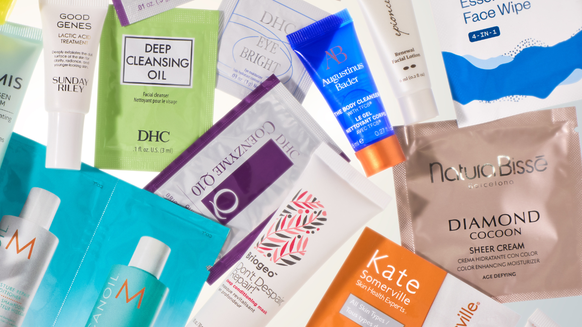
Glow on the Go: 8 Expert-Approved Travel Skin Care Tips to Take for Your Next Trip
